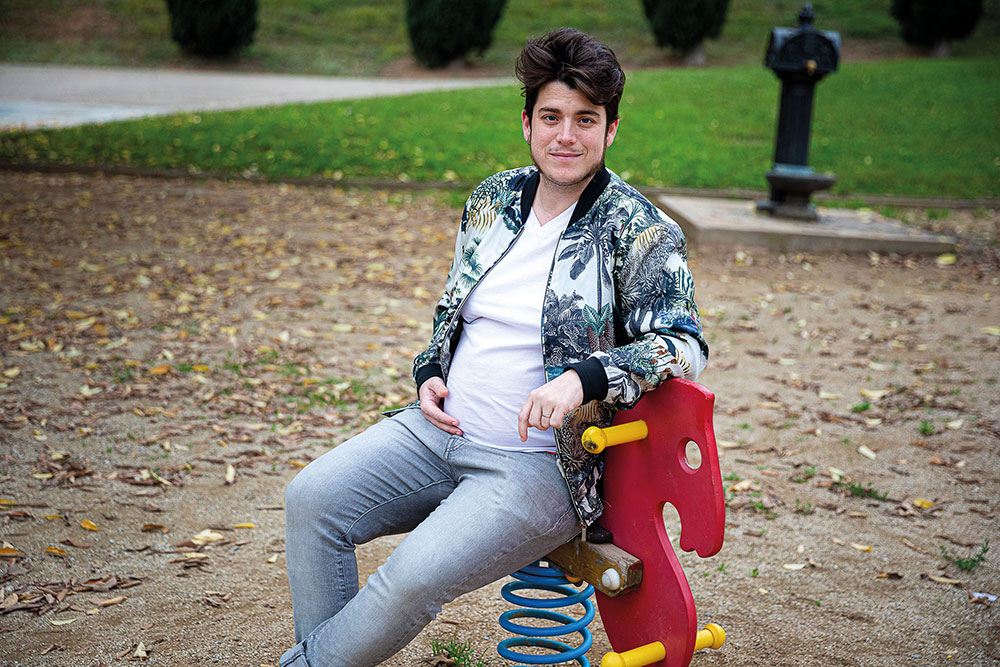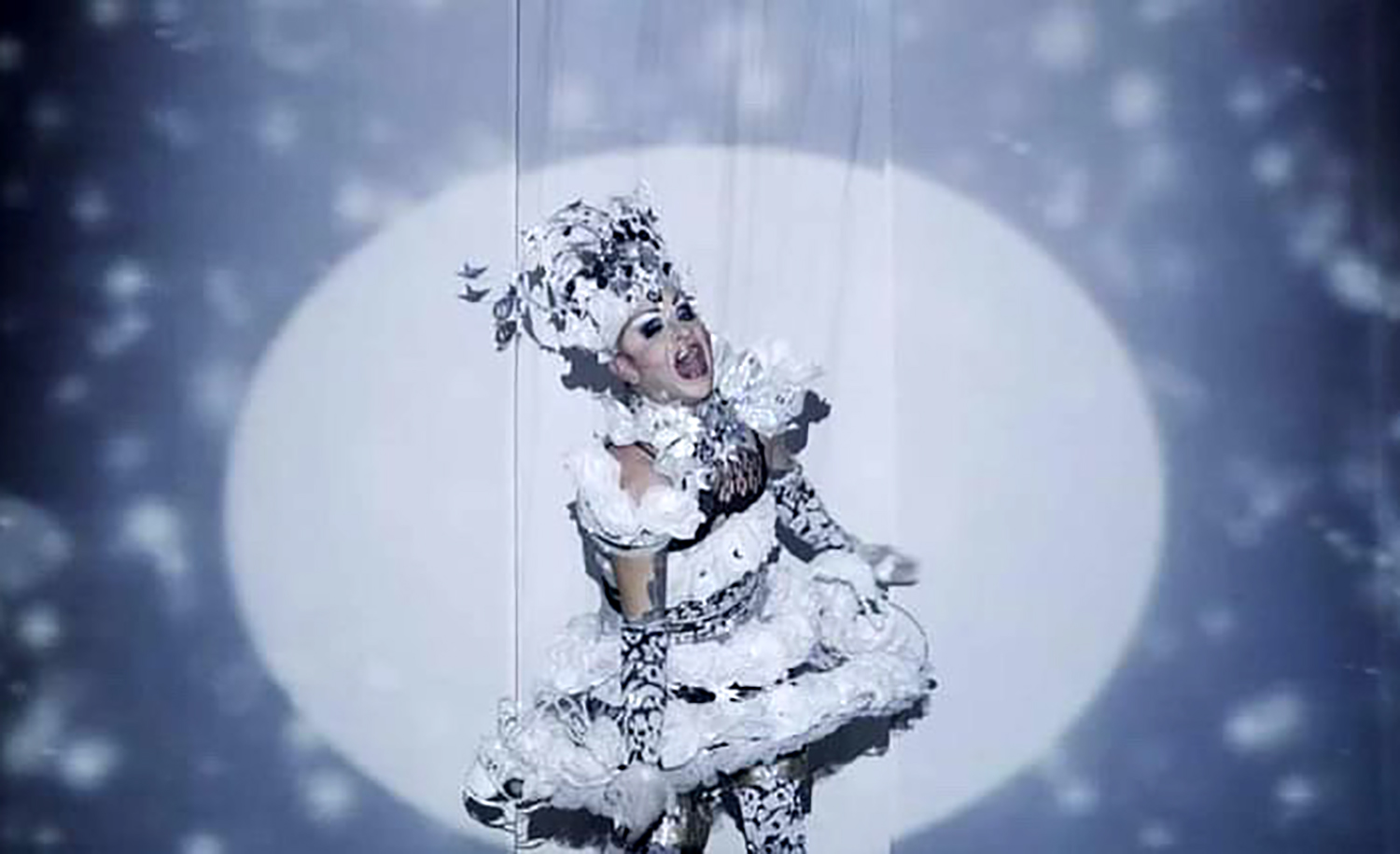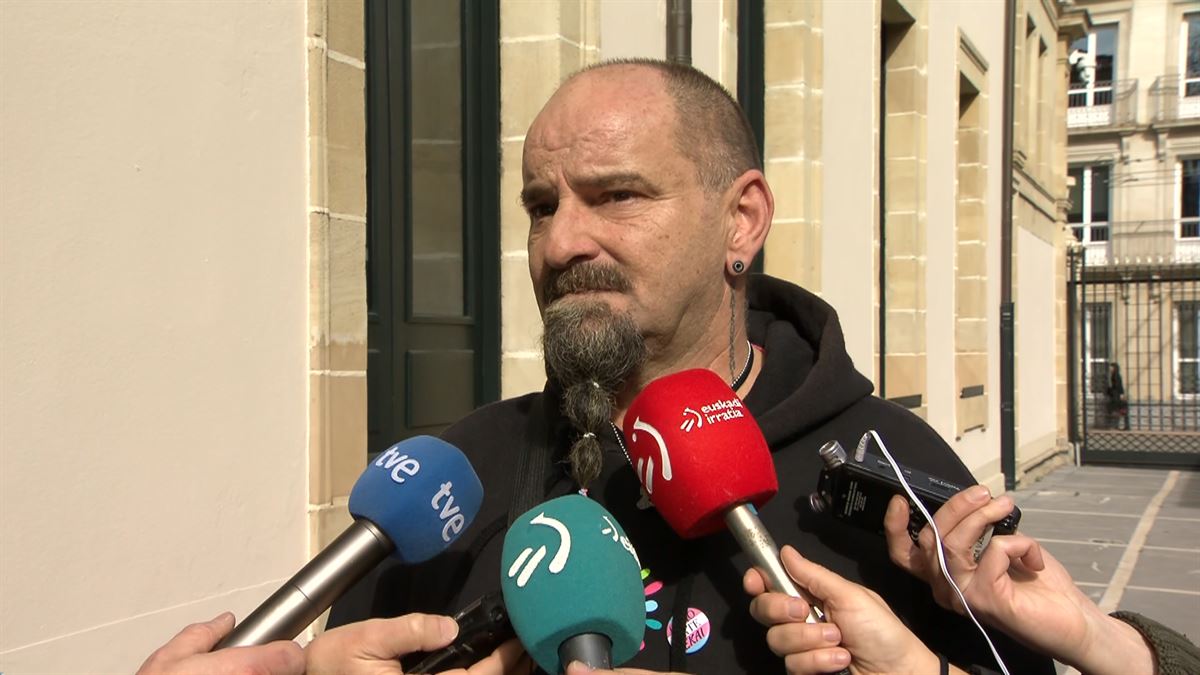"It is inevitable that there will be referrals of pregnant transsexuals"
- Pol Galofre (Badalona, 1987), an activist for the rights of transsexuals, claims that a pregnant woman is not "intolerable" for teenagers. Far from the labels imposed by the patriarchal system, and explaining his experience, he has become a referent of the first generation of pregnant transsexual men.

On your Twitter account, you say you don't know what it is to be or to feel a man. What do you mean?
Well, I don't know. I don't know what it is to be or to feel a woman. I've often asked people around me why they feel men or women, and so far I haven't found anyone who's been able to answer. Many women answer me that they feel by the characteristics of the body or the ability to pregnancy... Finally, being or feeling a woman or a man is an intimate certainty.
You also question whether masculinity belongs to you. Why?
The concept of dominant masculinity in society. I've always been a male person: when I was young, when I was a teenager and now. Well, maybe now I've feminized some visions. But in the bodies in which society recognizes the category of masculinity, masculinity is a problem for me, because it occupies and protects a space of privilege. And no, I don't believe in the concept of new masculinities, because that doesn't radically solve the problem.
What do you think is the way?
In my life, I've made different readings. Now I find the idea of vacancy as a center of privilege more interesting than the change of masculinity. When feminism once questioned the imposition of femininity, no one spoke of “new feminisms” or “unconstructed feminisms”. We have dismantled the traditional description of femininity and women, without further ado, have taken new spaces. So it hurts me to see how the male movement that is rethinking masculinity relates to the concept of masculinity. Above all, because the things that you're working on seem very basic to me, we should go further: not touching people, being able to talk about our feelings, or having responsibilities for home and care, seem to me to be basic elements for being a functional person in society. And the one who doesn't make them his has a problem that maybe is masculinity. So, let's defuse and look for new spaces.
What have been your referents on this road?
.jpg)
I love the Basque sociologist Jokin Azpiazu very much, I find it very interesting in academic terms. In addition, my referents have been male women and other transsexual men who do not comply with the impositions of a male person. In other words, referents that should be more visible and that should be the space they deserve.
You've become a referent: you're pregnant and you make a political claim to pregnancy.
I wanted to explain my experience because we have few references in this sense and I think it is the path of life that many people can take. For example, the fertility of cisgenic women takes great care: if a 30-year-old woman decides that she does not want to become pregnant and wants to make a tubal union, she may not let her do it, if she changes her mind in the future so as not to prevent her fertility. On the contrary, in the case of transsexuals who carry out the medical transition process, fertility does not have the same importance: it is secondary. We are suffering from the long-standing imbalance and forcing transgender people to be unable to make the transition in the laws of many countries, such as Sweden or England.
What about the Spanish state?
There are no specific laws, but sterilization is very likely considering that medical protocols include sterilization to be able to make sex change in official documents: it is inevitable to justify that you have made hormonal changes in your body for two years. If you do the hormonal process through testosterone and leave it later, you may become pregnant; but people who use progesterone and estrogens have a high risk of sterilization.
To what extent are the transition protocols contrary to the fertility of transgender people?
In the Spanish state and beyond, the path of multiple trans people is as follows: first, a psychologist or psychiatrist diagnoses you with transsexuality pathology; then, an endocrine begins a hormonal process; and one of the first options put on the table is hysterectomy, emptying of uterus and ova. This has two consequences: on the one hand, to speed up the transition process, as they take away directly the “hormones you don’t want”; and on the other hand, to become a subject of synthetic hormones for life. And, of course, sterile. I find it problematic that this is the only route, and that is why it is inevitable that there will be references to pregnant transsexuals fleeing traditional protocols and choosing new routes of transition.
adolescence I was educated reading as a puppet woman. When I got to college, I met the transgender boys, so far I had no reference. Fortunately, I moved into highly politicized activist spaces, and that was impossible for me to reflect on my head. That is why I believe it is essential to make visible the reality of transsexual pregnant boys: when a person decides to live the world as a man, it seems that he has to deny that body that society considers to be female. But no, that’s not so, and the proof is that those of us who inhabit the space of masculinity also get pregnant.”

























